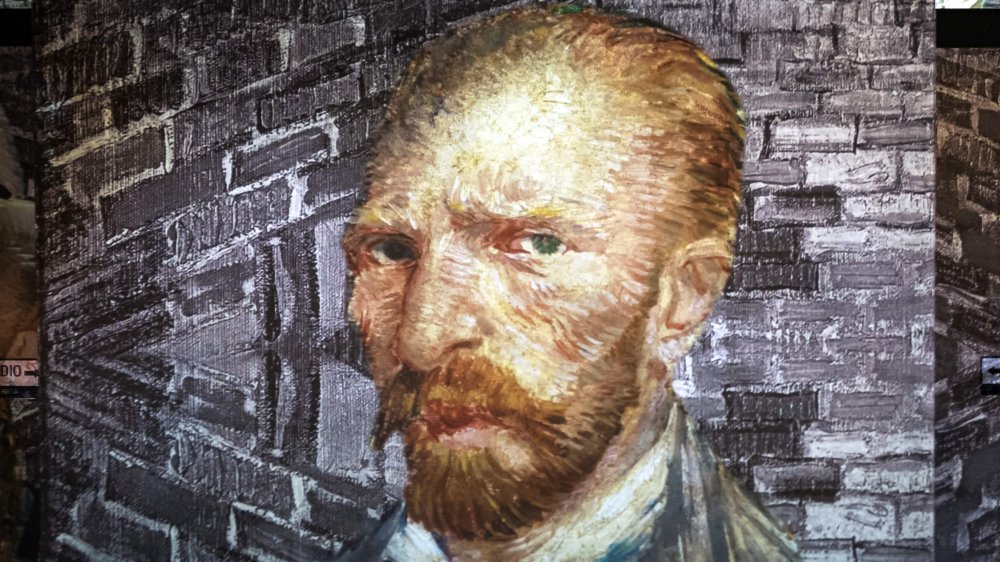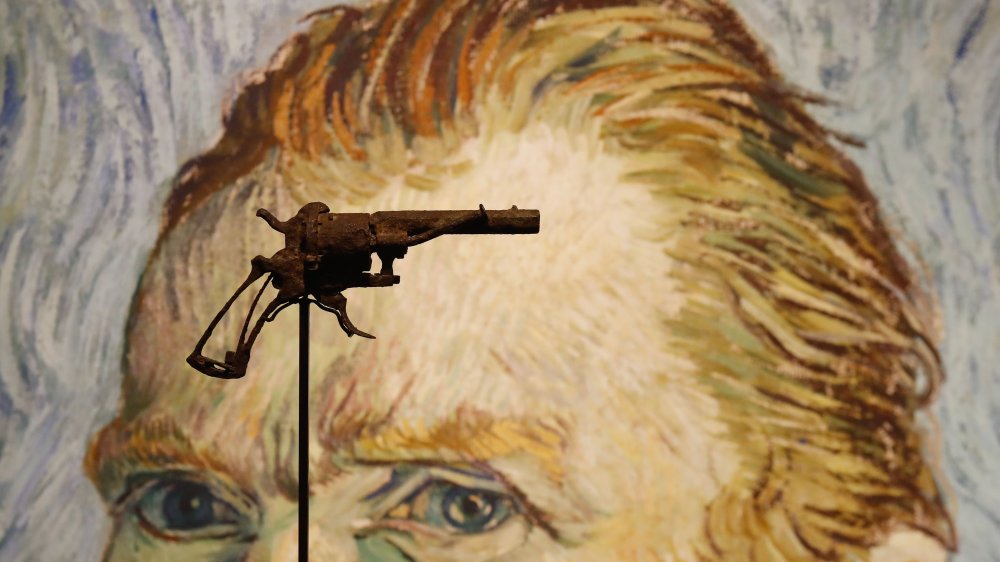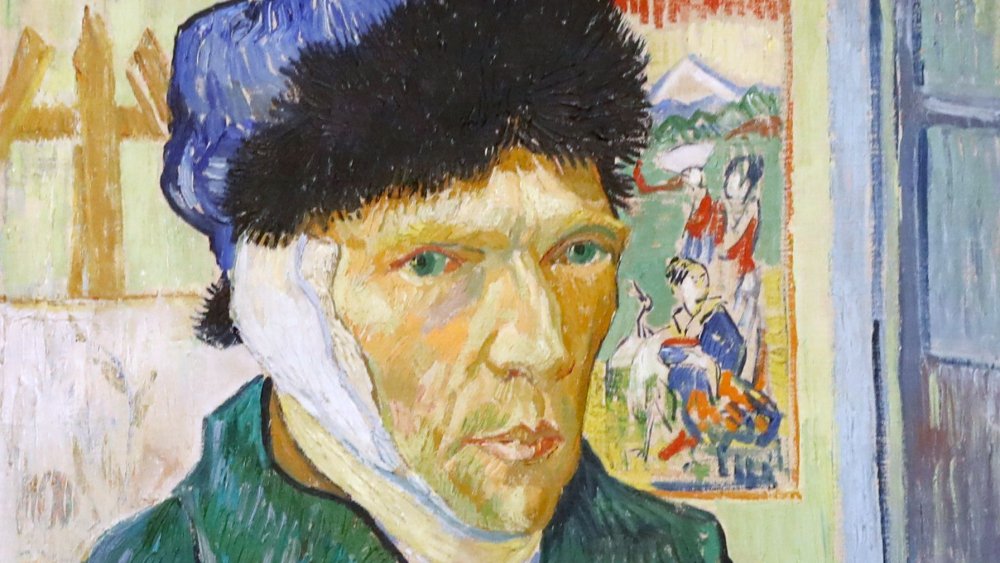The Truth About Vincent Van Gogh's Death
In 2019, a macabre auction item fetched roughly $182,000 in Paris. NPR reports that an anonymous bidder purchased a revolver that might have killed Vincent Van Gogh. The brilliant mind behind Starry Night never got to enjoy his eventual stardom, instead fading in an untimely twilight. After years of emotional decline a gunshot to the gut extinguished Van Gogh's light entirely in 1890, according to History. Many people believe he died by his own hand after a life riddled with heartache and mental illness, but some experts assert that he was murdered.
A sad beginning, a bitter middle, and a tragic end
Van Gogh was the quintessential tortured artist. As History details, before trying his hand at painting, he failed at various occupations. He trained with an art dealership that later decided not to deal with him. He failed to make the grade as a schoolteacher, and working at a bookstore didn't work out. He then tried to save the souls of sinners as a lay preacher, even relinquishing his belongings and sleeping on floors. But his leap of faith didn't save Van Gogh from unemployment.
As a painter, Van Gogh would go largely unknown and unappreciated until after his death (One of his hundreds of unsold works, Portrait of Dr. Gachet, would be bought for $82 million in 1990). And he created many of his greatest works in a mental institution. Given the terrible hand he'd been dealt, you might think, "unlucky in life, lucky in love," but no such luck. His heart was repeatedly broken and by 1888 his sanity shattered as well, leading to the infamous incident in which he severed his left earlobe and gave it to a prostitute. In 1889 he was voluntarily institutionalized and the following year he died.
Some experts cry foul play
Not everyone believes that the two biggest wounds in Van Gogh's life were self-inflicted. History notes that a pair of German art historians speculated that the story of Van Gogh's ear was a fiction fabricated to mask the fact that his friend, Paul Gaugin lopped off Van Gogh's earlobe with a fencing sword during a nasty argument. Per the Independent, a pair of Pulitzer Prize-winning authors claimed in a 1960 biography that a 16-year-old schoolboy murdered the artist.
However, the bullet wound, Van Gogh's personal circumstances, and an apparent suicide letter in his pocket suggest otherwise. While it's impossible to draw a conclusion with 100 percent certainty, it's obvious that Van Gogh struggled with deep depression. And maybe those who assert murder struggle to accept that such a brilliant mind could lose a battle with mental illness.
If you or anyone you know is having suicidal thoughts, please call the National Suicide Prevention Lifeline at 1-800-273-TALK (8255)


